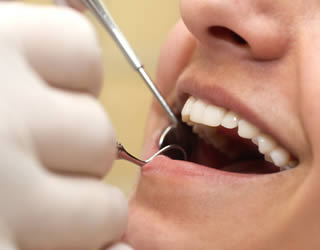Versatile Dental Crowns

This restorative treatment offers many benefits for our Wickford and Rayleigh patients.
After the use of a filling, a dental crown is one of the more common procedures used to restore a decaying or damaged tooth.
They offer an excellent means of providing strength to a tooth, where no other procedure can. They are also often used to complete both a root canal procedure and a dental implant placement.
Although our teeth are generally quite strong, providing that they are healthy, there are still many ways in which they can become damaged.
These include:
- Excess force being used to bite on hard foods
- Damage to a tooth weakened by cavities
- Bruxism, or teeth grinding
- General wear and tear caused by age
- Teeth that have been weakened through chips and cracks
Whilst, at the Cygnet Dental Practice, we will always try to treat a patient using the least invasive procedure possible, this has to be balanced with the likely outcome. Although a filling may be a minor procedure, and is an excellent option in its own right, it is not always suitable for more significant damage to the teeth.
What is a dental crown?
A dental crown, also sometimes known as a ‘cap’, is a tooth shaped object which is used to replace the damaged or decaying part of a tooth where a filing would not provide sufficient strength. They are also usually used to strengthen the tooth following root canal treatment. To fit a crown, the tooth will need to be shaped so that the crown can be attached in a way that offers maximum security and strength. Both the shape and the colour of the rest of your natural teeth will be taken into consideration so that your new crown appears as natural looking as possible.
How are crowns produced and fitted?
You can’t simply buy a crown ‘off the shelf’. These have to be made for each individual patient as no two patient’s teeth are the same shape and colour. In order to provide you with the best result possible, you will usually need to have two appointments at our Wickford practice.
At the first of these, your tooth will be shaped so that a crown can be attached to it. Impressions will then be taken of your teeth, and it is these impressions that are used to produce your crown. This is done at an outside dental laboratory in order to produce high quality dental crowns. As this process takes a week or so, you will also be fitted with a temporary crown which helps you to eat more easily and protects the shaped tooth both from further damage and additional sensitivity.
When the new crown has been returned to us, you will be recalled for a second appointment. During this, the temporary crown will be removed and your new crown fitted. This is done using a strong dental adhesive that should ensure that your crown will remain attached for many years to come.
Aftercare of your crown
Although a dental crown should last in the region of ten years or more, it will not do so if you don’t look after it. There can be an assumption that because the crown is made from an artificial material, usually ceramic or porcelain, sometimes combined with a metal, that they can’t decay and therefore don’t need brushing. Whilst, strictly speaking, this is accurate, it doesn’t take into account the fact that the crown is attached to the remaining part of your natural tooth. This can certainly decay, and if it does, the crown may well become ill fitting and may become detached.
Do make sure to brush and floss any teeth that have a crown attached as well as your natural teeth.
Are there any disadvantages of a crown?
There are few disadvantages in having this procedure. As it is usually performed when a filling is insufficient, it is often the last option for retaining your natural tooth. Not only are they natural looking but also offer a high degree of strength, making them almost as functional as a natural tooth.
There is one thing that some patients may wish to consider though. Your crown is made from an artificial material and will not respond to treatments such as teeth whitening in the same way as a natural tooth will. This may mean that the tooth with a crown may look different to the rest of your teeth if you have this treatment. If you have a crown, or a dental implant, and are considering a teeth whitening treatment, please talk to one of our Wickford cosmetic dentists so that we can discuss an appropriate solution to this problem.
Both restorative and cosmetic dentistry is available at the Cygnet Dental Practice. You can make an appointment to see a dentist or hygienist by calling us on 01268 733078. We look forward to seeing you soon!
